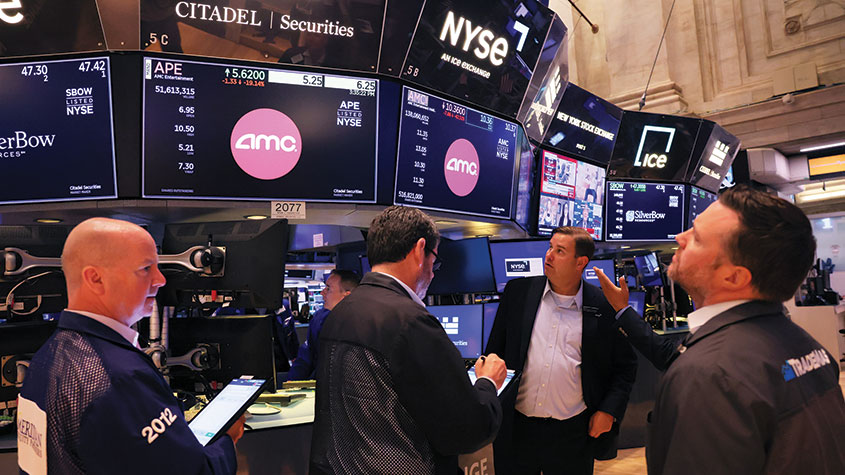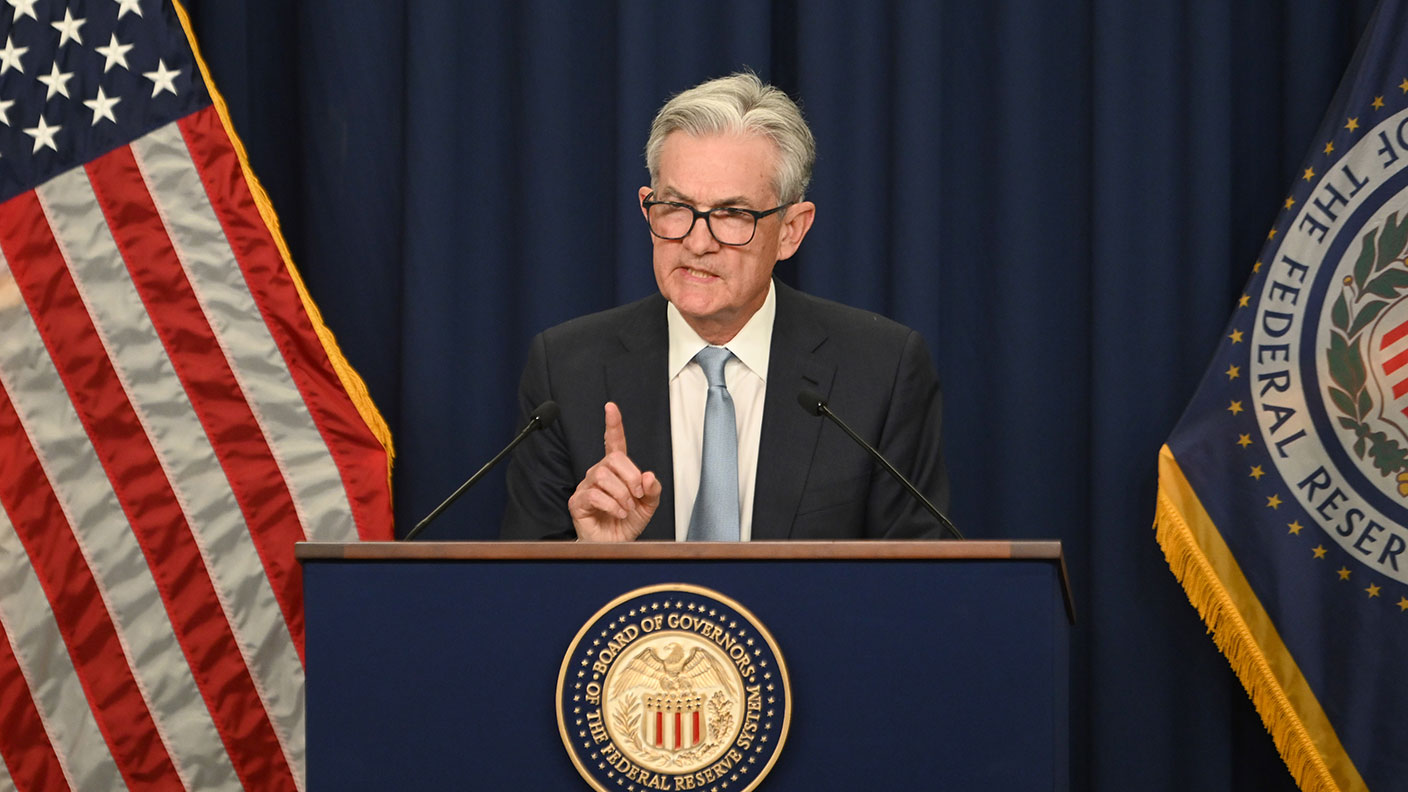How companies have juiced their lemons
Corporate profits in America may not have been as rosy as you've been led to believe, says Tim Bennett. That could spell trouble for stock markets.
Get the latest financial news, insights and expert analysis from our award-winning MoneyWeek team, to help you understand what really matters when it comes to your finances.
You are now subscribed
Your newsletter sign-up was successful
Want to add more newsletters?

Twice daily
MoneyWeek
Get the latest financial news, insights and expert analysis from our award-winning MoneyWeek team, to help you understand what really matters when it comes to your finances.

Four times a week
Look After My Bills
Sign up to our free money-saving newsletter, filled with the latest news and expert advice to help you find the best tips and deals for managing your bills. Start saving today!
It's not just the potential actions of the Federal Reserve that should worry investors, according to former Goldman Sachs economist Gavyn Davies, writing in the Financial Times. "The fundamental earning capacity of corporate America" is about to be "found wanting".
Take a look at the annual contribution that company profits make to GDP (broadly, a measure of national wealth) over the last century and you will find that it fluctuates around a pretty constant average. However, in recent years corporate profits as a share of GDP have risen sharply "above previous peaks". Why? Because at the same time the share of GDP accounted for by wages has been falling to "unprecedented depths".
According to the International Labour Organisation, a UN agency, the share of GDP in the advanced economies accounted for by gross profit has risen by about 10% of GDP over the past 30 years. The wage share has fallen by about the same amount. So shareholders have enjoyed a windfall as firms have grown output per head while shrinking real' (after-inflation) wages. Put bluntly, firms have squeezed more juice from their lemons than ever before.
MoneyWeek
Subscribe to MoneyWeek today and get your first six magazine issues absolutely FREE

Sign up to Money Morning
Don't miss the latest investment and personal finances news, market analysis, plus money-saving tips with our free twice-daily newsletter
Don't miss the latest investment and personal finances news, market analysis, plus money-saving tips with our free twice-daily newsletter
How much more? Davies estimates that if that 10% drop in the wage share of GDP had not occurred, and everything else had stayed the same, then net corporate profits would be up to two-thirds lower than they are today. The reasons behind this shift are complex technology, globalisation and a reduction in labour bargaining power have all played their part.
But one thing's for sure: should this decline in wages reverse and most trends "mean revert" eventually equity markets could be very vulnerable indeed.
Get the latest financial news, insights and expert analysis from our award-winning MoneyWeek team, to help you understand what really matters when it comes to your finances.
Tim graduated with a history degree from Cambridge University in 1989 and, after a year of travelling, joined the financial services firm Ernst and Young in 1990, qualifying as a chartered accountant in 1994.
He then moved into financial markets training, designing and running a variety of courses at graduate level and beyond for a range of organisations including the Securities and Investment Institute and UBS. He joined MoneyWeek in 2007.
-
 Should you buy an active ETF?
Should you buy an active ETF?ETFs are often mischaracterised as passive products, but they can be a convenient way to add active management to your portfolio
-
 Power up your pension before 5 April – easy ways to save before the tax year end
Power up your pension before 5 April – easy ways to save before the tax year endWith the end of the tax year looming, pension savers currently have a window to review and maximise what’s going into their retirement funds – we look at how
-
 As China reopens, why pick an income strategy?
As China reopens, why pick an income strategy?Advertisement Feature Yoojeong Oh, Investment Manager, abrdn Asian Income Fund Limited
-
 A new dawn for Asian markets?
A new dawn for Asian markets?Advertisement Feature James Thom, Investment Manager, abrdn New Dawn Investment Trust plc
-
 The end of cheap money hits the markets
The end of cheap money hits the marketsNews Markets have swooned as central banks raise interest rates, leaving the era of cheap money behind.
-
 Seoul attempts to close the “Korea discount” for stocks
Seoul attempts to close the “Korea discount” for stocksNews South Korean stocks suffer from the “Korea discount” – with the country still classified as an emerging market, investors are reluctant to pay a premium.
-
 Upcoming IPOs in 2022: which companies are planning to list this year?
Upcoming IPOs in 2022: which companies are planning to list this year?News Rupert Hargreaves explains what an IPO is, how public and private companies differ, and picks out some of the more notable companies set to list on the stock exchange this year.
-
 Are stocks back in a bull market or is this just a bear market rally?
Are stocks back in a bull market or is this just a bear market rally?News The S&P 500 index gained 17% between its June lows and 16 August, while the Nasdaq Composite rose more than 20%. So are stocks back in a bull market or is this just a brief rally before they resume their slide?
-
 Enjoy the bear market rally while it lasts
Enjoy the bear market rally while it lastsNews Investors seem to think that a weaker US economy will cool inflation and see the Fed relent on interest rate rises. But that optimism may be misplaced, with July’s stockmarket gains looking very much like a bear-market rally.
-
 The Fed really is fighting inflation – so don’t expect an early end to the bear market
The Fed really is fighting inflation – so don’t expect an early end to the bear marketAnalysis In an attempt to contain raging inflation, the Federal Reserve has raised US interest rates by 0.75 percentage points. And it’s going to keep on raising them till something breaks, says John Stepek.